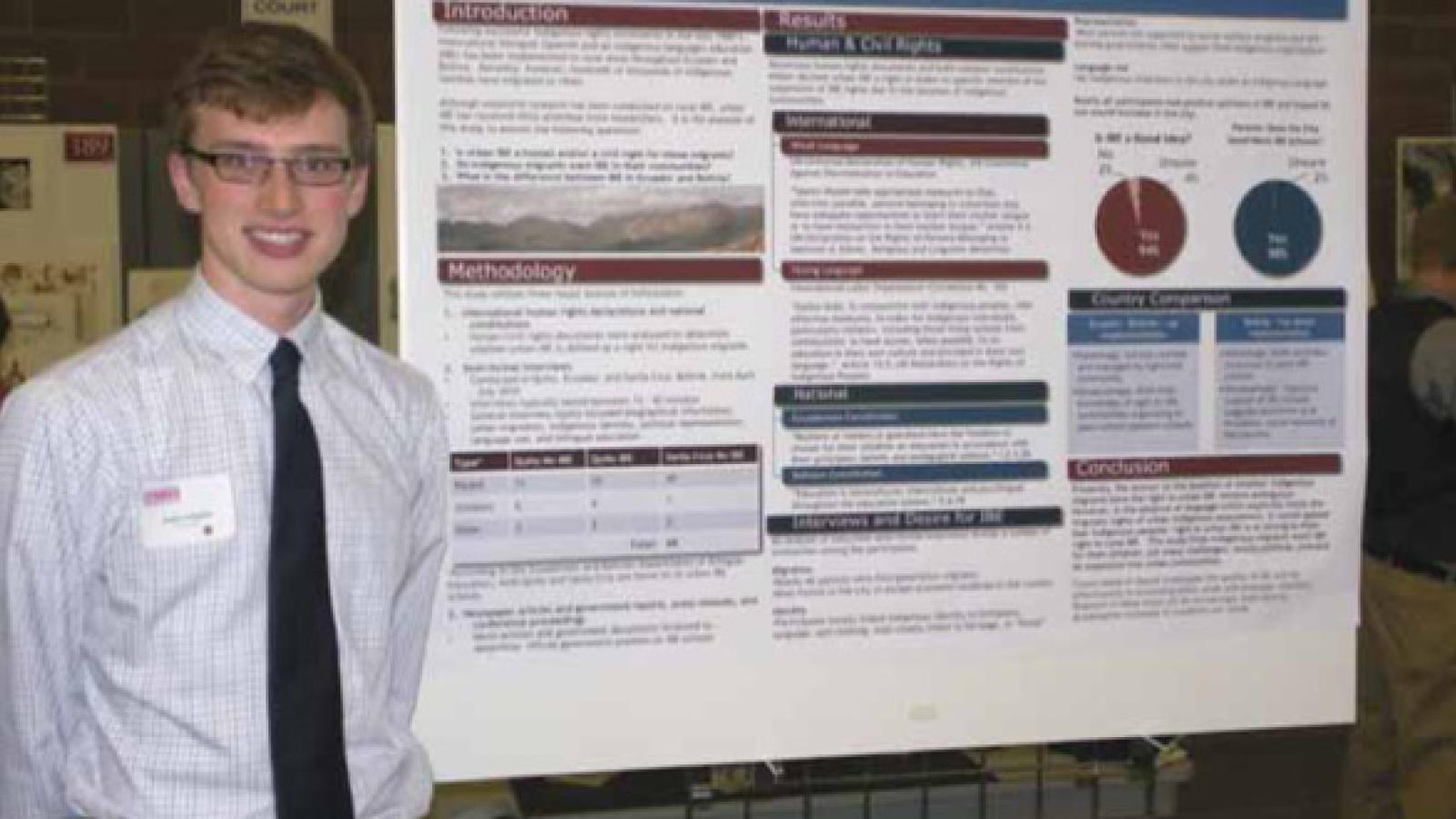Bilingual Education and Human Rights in Two Urban Indigenous Communities
Presenter: Justin Schulze Development Studies
Advisor: Prof. Ulises Juan Zevallos- Aguilar, Spanish & Portuguese
In the past twenty years great strides have been made in the effort to bring intercultural bilingual (Spanish and an indigenous language) education (IBE) to all indigenous peoples of Ecuador and Bolivia. Nearly all rural indigenous villages in the two countries have access to IBE. Yet, despite recent surges in indigenous urban migration, very few bilingual schools exist in Ecuadorean and Bolivian cities. This study seeks to determine whether urban indigenous peoples have the right to bilingual education, whether they desire it for their children, and how urban IBE differs in the two countries.
Referencing international human rights declarations and national constitutions, this study finds the lack of urban IBE in both countries represents a violation of human and civil rights and denies indigenous people the right to selfdetermine their future. An analysis of seventy interviews conducted in Quito, Ecuador, and Santa Cruz, Bolivia, reveals that nearly all urban indigenous people would prefer that their children attend bilingual schools. Finally, the manner of implementation of bilingual schools in each city demonstrates a difference in the roles played by the Ecuadorean and Bolivian governments in promoting urban IBE. This study shows that while IBE schools in Quito were created as a result of "bottom-up" campaigns led by parents and communities, IBE schools in Santa Cruz are currently being opened by municipal governments utilizing a "top-down" approach.
By exploring the controversial issue of urban indigenous bilingual education, this study highlights the need for governments to reconsider or reaffirm their dedication to minorities' rights in the face of an increasingly fluid society less defined by traditional boundaries.

